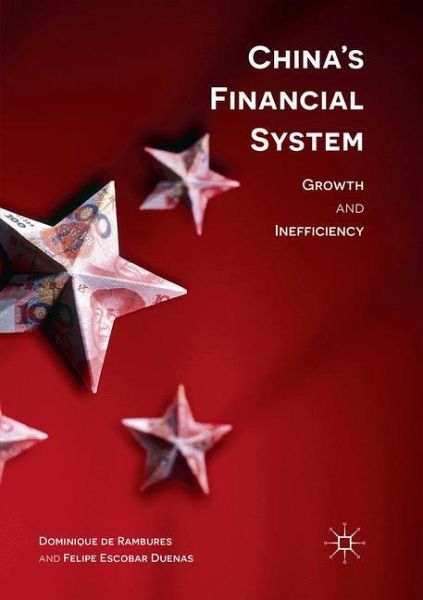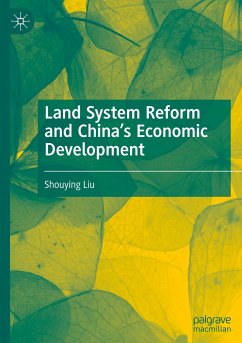
China's Financial System
Growth and Inefficiency
Versandkostenfrei!
Versandfertig in 6-10 Tagen
83,99 €
inkl. MwSt.
Weitere Ausgaben:

PAYBACK Punkte
42 °P sammeln!
This book examines the volatile landscape of the Chinese economy and the barriers to its continuing development. The author argues that underlying inefficiencies in China's financial system currently prevent the further growth of its institutions and inhibit reform of monetary and fiscal policy. Rambures shows that, despite efforts to avoid a "middle income trap", such long-overdue structural reforms are still faced with strong resistance from both economic and political circles. Chapters discuss approaches in tackling the Chinese national debt, the recent stock exchange collapse and subsequen...
This book examines the volatile landscape of the Chinese economy and the barriers to its continuing development. The author argues that underlying inefficiencies in China's financial system currently prevent the further growth of its institutions and inhibit reform of monetary and fiscal policy. Rambures shows that, despite efforts to avoid a "middle income trap", such long-overdue structural reforms are still faced with strong resistance from both economic and political circles. Chapters discuss approaches in tackling the Chinese national debt, the recent stock exchange collapse and subsequent currency devaluation, declining trade surplus, the wariness of foreign investors and its negative impact on foreign exchange reserves, and the heavy burden of state-owned "zombie companies". The discussion positions current economic events within the context of China's transition from a foreign trade and investment-led economy to one that is propelled by domestic consumption, service industries and innovation. Crucially, Rambures also addresses financial trends with reference to pervasive long-term influencing factors such as an ageing population, increasing inequality, corruption, pollution and migration.












